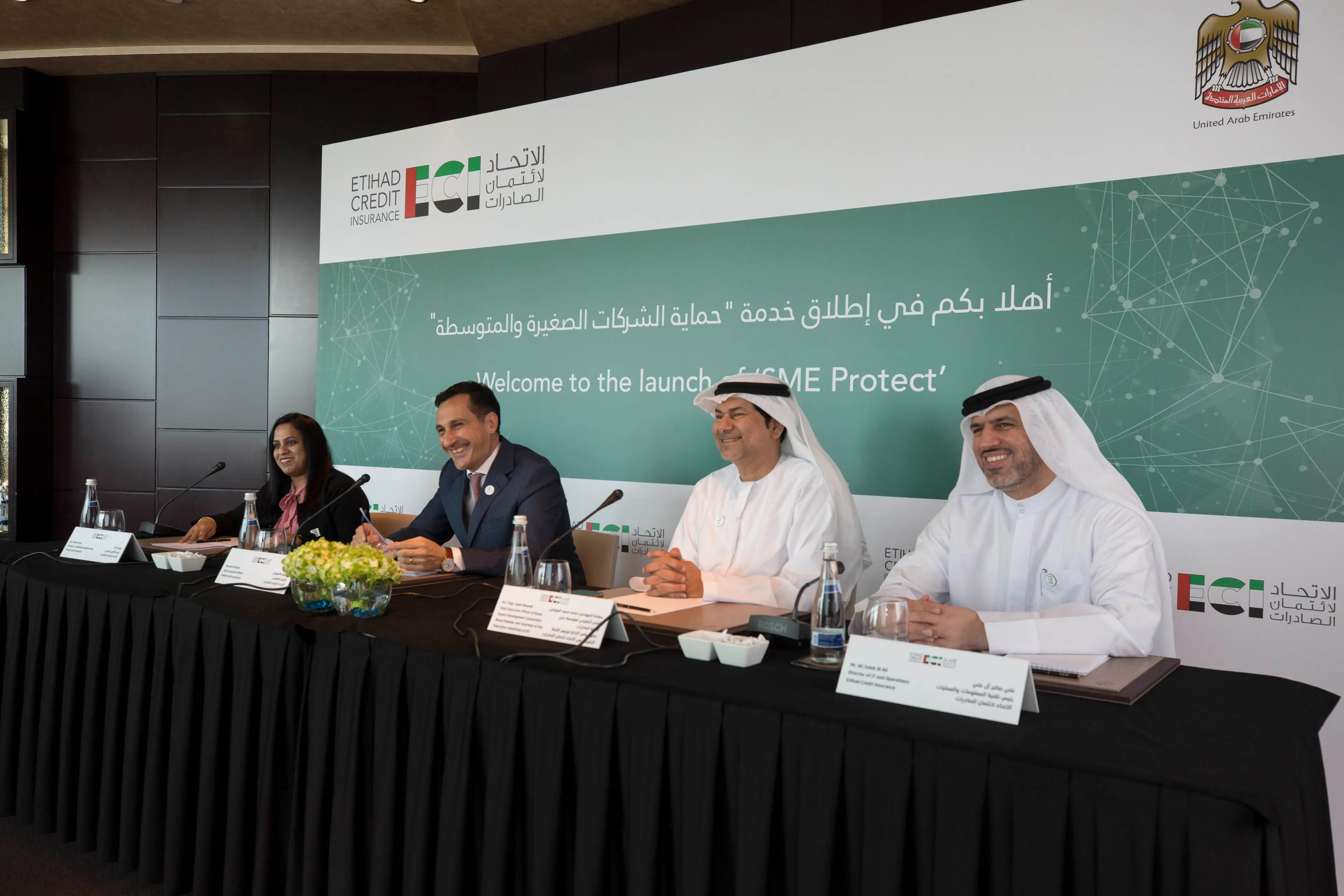PHOTO
Etihad Credit Insurance (ECI), the UAE Federal export credit company, has launched ‘SME Protect’, an online export credit solution designed for Small and Medium Enterprises (SME).
‘SME Protect’, which will be available to exporters and re-exporters in the UAE from September 1, 2019, aims to protect companies from the risk of non-payments by their buyers overseas, by providing guarantees for their accounts receivables.
According to Saed Alawadi, CEO of Dubai Export Development Corporation, Board Member and Chairman of the Executive Committee at ECI, development of the SME sector is a key focus area for the UAE government as part of its agenda for economic diversification through promotion on non-oil sectors.
“This one-of-a-kind solution… will provide the necessary protection for SME exporters to capitalize on opportunities across regional and global markets. We expect our solution can provide one of the tools to make UAE companies competitive globally.”
The UAE’s SME sector, which represents 95 percent of companies in the country and 86 percent of non-oil private employment, was under-penetrated in terms of insurance support, “a gap we felt we could fill,” ECI CEO Massimo Falcioni said.
ECI is targeting to insure approximately 100 SMEs between September 2019 and January 2020.
It took more than a year to develop SME Protect solution and the process involved setting up focus group discussions in Dubai, Abu Dhabi and Ras Al Khaimah to identify the main challenges and a country-wide survey that reached out to 140 entrepreneurs.
“The survey found that the mode of payment of SMEs is unique in the UAE with only three percent selling on open credit and most (60 percent) preferring cash or advance payment,” he said. Under open credit norms, the exporter ships the goods to the buyer and receives payment at a later date.
In terms of sectors, he continued, 82 percent of the SMEs in metal and related products sell on cash, and 18 percent sell on Letters of Credit (LC).
“In electrical equipment, 62 percent sell on cash and 30 percent LCs, and in chemical and chemical products, it is 58 percent cash and 42 percent LC; in both Food & Beverage and Machinery, it is 54 percent still on cash payment.”


Saed Alawadi, CEO of Dubai Export Development Corporation, Board Member and Chairman of the Executive Committee at ECI (3rd from left), Massimo Falcioni, CEO of ECI (2nd from left), Swarna Lata, Director of Commercial Underwriting of ECI (1st from left), Ali Saleh Al Ali, Director of IT & Operations (4th from left), at the SME Protect launch press conference
Falcioni explained that cash-based export contracts ensured immediate cash availability for SMEs but eroded their competitiveness. “When they try to go into international markets and expand their business, it is very challenging because there are other companies that offer more competitive open credit terms.”
He said private insurers, like banks, were not interested in providing export credit insurance business to SMEs due to the “too small” size of business. And where they did, they were quick to reduce the credit limit in order to reduce their exposure and protect their balance sheet, he noted.
“The survey also found that 43 percent had difficulties in payment collection, which affected their ability to penetrate high-growth market segments. So if you want to add competitiveness to the SMEs in the UAE, you need to give them an instrument like SME Protect which gives them chance to sell on open credit terms,” said the ECI chief.
ECI’s partner bank network for SME Protect includes First Abu Dhabi Bank (FAB), Emirates NBD, RAK Bank, Standard Chartered, Natixis and Abu Dhabi Commercial Bank (ADCB). Islamic Corporation for the Insurance of Investment and Export Credit (ICIEC) is the reinsurance partner for SME Protect solution.
The contribution of the SME sector to the UAE's GDP is forecasted to increase to 53 per cent in 2019 from about 49 per cent in 2018, according to the Federal Competitiveness and Statistics Authority. The UAE government aims to increase this rate to around 60 per cent by 2021.
(Reporting by Anoop Menon, editing by Seban Scaria)
(anoop.menon@refinitiv.com)
Our Standards: The Thomson Reuters Trust Principles
Disclaimer: This article is provided for informational purposes only. The content does not provide tax, legal or investment advice or opinion regarding the suitability, value or profitability of any particular security, portfolio or investment strategy. Read our full disclaimer policy here.
© ZAWYA 2019




















